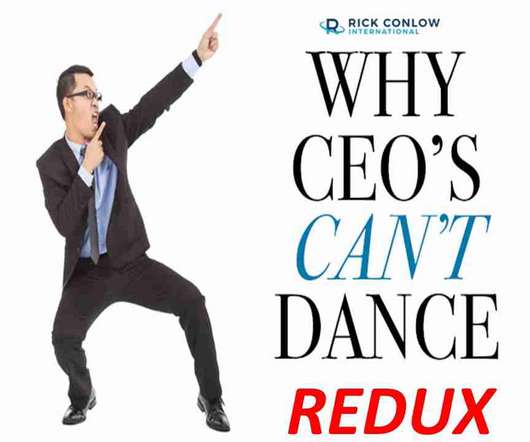Why CEOs Can’t Dance Redux
Rick Conlow
JANUARY 2, 2023
They operate in a bubble and do not attend the party. According to Dr. Travis Bradberry, CEOs and other executives have the lowest emotional intelligence skills of all management levels. CEOs focus on data, facts, figures, and metrics. Too many do not dance because they have lost touch with reality.













Let's personalize your content